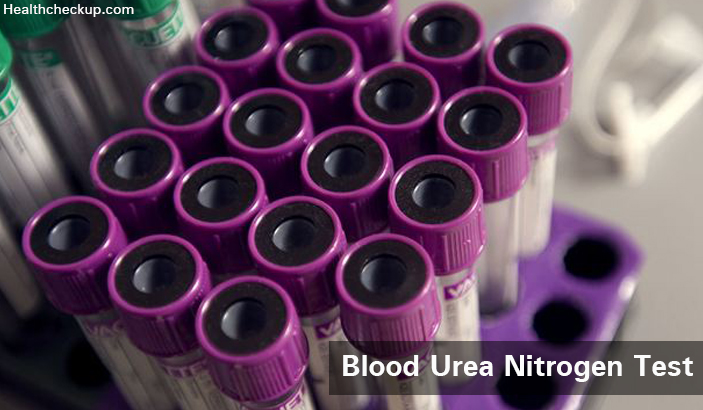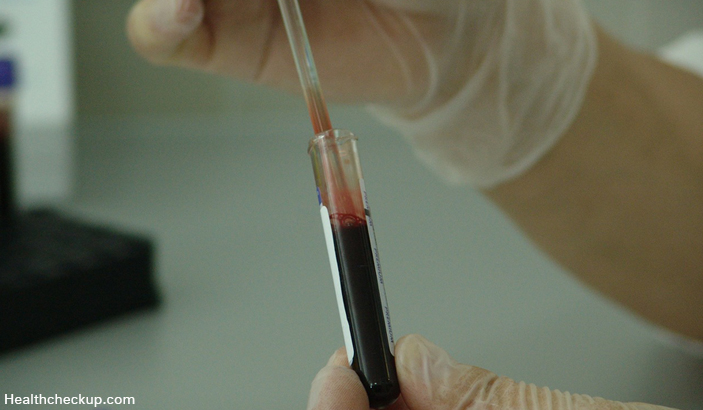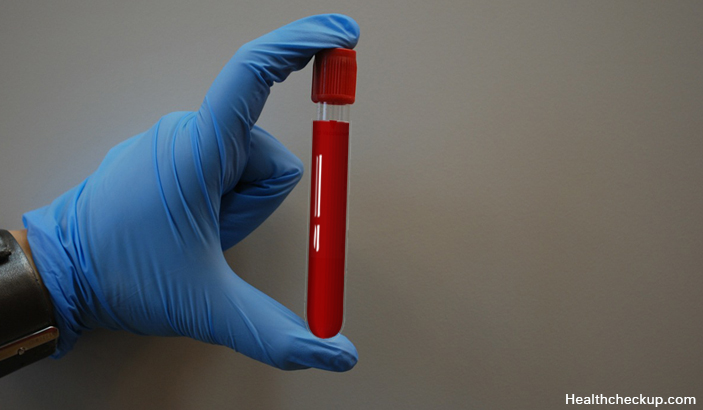Urea nitrogen is a normal waste product produced in the body after a person eats. Urea nitrogen is usually formed in the body and got rid of in the following manner:
- The liver produces ammonia which contains nitrogen after it breaks down proteins used by the cells of the body.
- The nitrogen present in ammonia combines with other elements such as carbon, hydrogen and oxygen and forms urea which is a chemical waste product.
- The ureathat is formed travels from the liver to the kidneys through the bloodstream.
- When the kidneys are healthy, they filter the urea, usually leaving a small trace of it in the blood, and remove other waste products from the blood and get rid of them through urine.
When the kidneys are not healthy, they are unable to remove the blood urea nitrogen test from the blood and leave large amounts of it in the blood. The blood urea nitrogen (BUN) test is done to measure the levels of BUN in the blood, and if its levels are higher than normal, it indicates that either the kidney or the liver are not working properly.
Why is the Blood Urea Nitrogen (BUN) Test Conducted?
Your doctor may order a BUN test for the following reasons:
- If he suspects damage to the kidneys
- If he wants to evaluate the functioning of your kidneys
- To determine the effectiveness of the kidney dialysis treatment if you’re on hemodialysis or peritoneal dialysis
- As part of a battery of other tests to help in the diagnosis of a number of conditions that include liver damage, gastrointestinal bleeding, congestive heart failure and urinary tract obstruction. But an abnormal BUN test result alone does not confirm any of these conditions.
Preparing for the BUN test
Before undergoing the test, it is important to inform your doctor about the medications you are on. The doctor may ask you to stop taking certain medicines for a certain period of time if he thinks that the medications may alter the results of the test.
If you’re only getting the BUN test done, then you can eat and drink before the test. But if you’re getting other blood tests done, your doctor may ask you to fast before getting the test done.
The Test Procedure :
A lab technician will withdraw a sample of blood from a vein in your arm or on the back of your hand. You may feel a minor sting when the needle pierces through your skin, and it may feel a little sore afterwards, but you can get back to your usual routine almost immediately after the test. The results may take a few days to arrive from the lab.
Understanding the Results of the BUN Test
The results of the blood urea nitrogen (BUN) test measures how much BUN is present in your body. The normal range is 7 to 20mg/dL. You should talk to your doctor if the test results do not appear to be in the normal range.
Several factors can affect your BUN test results, so having a low or high BUN level may not be indicative of a health problem. Some factors that affect the BUN results include:
- A high-protein diet that causes high BUN levels
- A low-protein diet that causes low BUN levels
- Medications such as steroids and antibiotics that may increase or decrease BUN levels
- Pregnancy
- Aging
High BUN Levels may also Indicate Various Problems with your Kidneys. They can also be Indicative of:
- Dehydration
- Urinary tract obstruction
- Congestive heart failure
- Shock
- Burn injuries
- Heart attack
- Gastrointestinal bleeding, i.e., bleeding in your digestive tracts such as the stomach, intestines or the oesophagus
Low BUN levels are very rare, but when they do occur they may suggest a problem in the liver, malnutrition or overhydration.
But a BUN test alone cannot be the final deciding factor for these conditions, therefore more tests will be needed to be done to arrive at the right diagnosis.
The Creatinine Test
As mentioned earlier, a BUN test alone will not help diagnose any kidney problem, therefore your doctor may prescribe a creatinine test, another blood test that helps check the functioning of your kidneys. BUN levels when compared with the creatinine levels give a clearer picture of the functioning of the kidneys. It is known as the BUN/Creatinine ratio. The ideal BUN/Creatinine ratio is usually between 10:1 and 20:1.
Having a higher than normal BUN/Creatinine ratio is suggestive of poor blood flow to the kidneys, and the person could be suffering from congestive heart failure, dehydration or gastrointestinal bleeding. Whereas a ratio below the normal range could be due to a liver disease or malnutrition.
Symptoms that Prompt Doctors to Order a BUN Test
The blood urea nitrogen test is often ordered by doctors for patients exhibiting the signs and symptoms of kidney disorders, which include:
- Increased frequency of urination
- Bloody, dark or foamy urine
- Joint and bone pains
- Back pain
- Cramping in muscles
- Restless legs, especially at night
- Fatigue
- Troubled sleep
- Loss of appetite
- Swelling in the face, hands and legs
- Dry, itchy skin
Follow-up Tests and Treatments
As mentioned earlier, a BUN test alone will not help doctors diagnose a disease. Abnormal BUN test results will prompt the doctors to order creatinine tests and urine tests.
The course of treatment for patients with abnormal blood urea nitrogen (BUN) test results depends on the cause and severity of the cause. Patients with organ failure will need intensive treatment, and may also need dialysis. If higher BUN levels are caused by high protein intake, then the patients are advised to limit their protein intake by avoiding protein-rich foods like meat, fish, beans and dairy and increasing their fruit and vegetable intake. Staying well-hydrated also helps prevent the build-up of BUN. High BUN levels are also associated with high blood pressure and diabetes. Controlling hypertension and high blood sugar may also help in bringing abnormal BUN levels to normal.
Medically Reviewed By

I am an experienced Medical/Scientific writer with a passion for helping people live a happy healthy life. My thirst for writing has followed me throughout the years – it is there when I wake up, lingering at the edges of my consciousness during the day, and teases me at night as I go to sleep.











